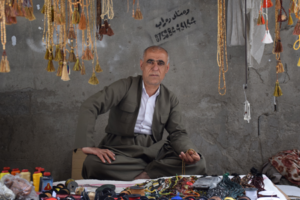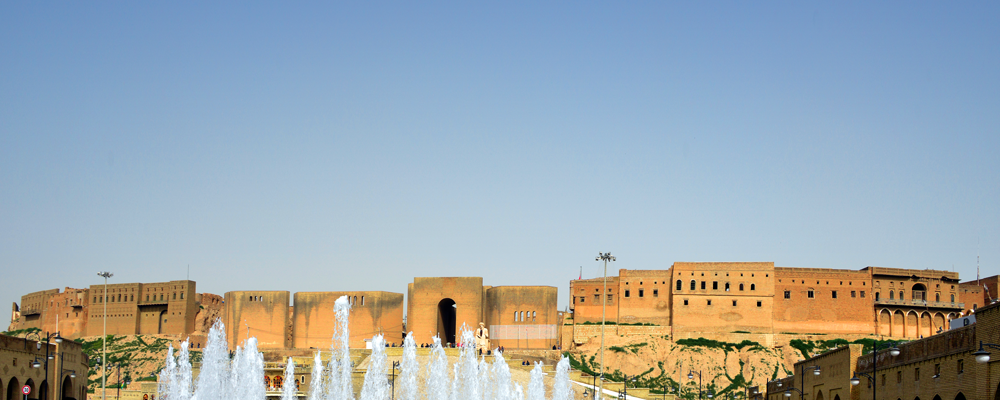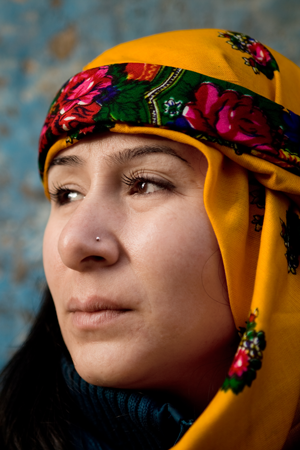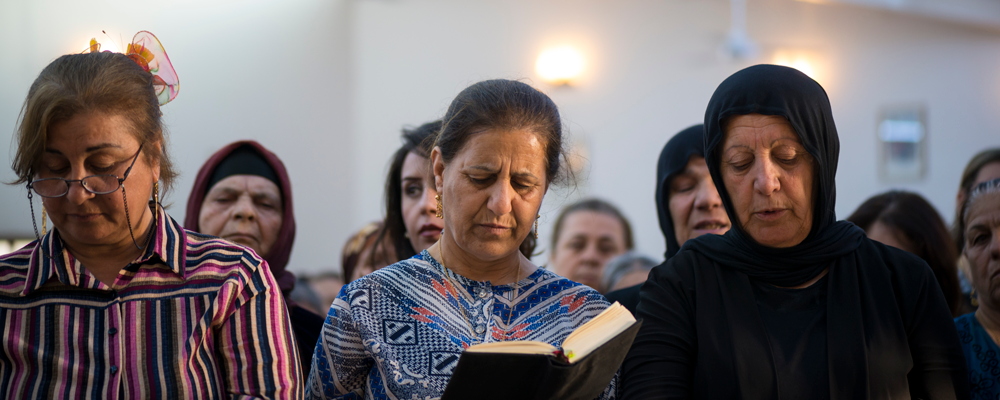In This City is a challenge to journey with us in prayer for 12 key cities in 2020. We ask you to commit to praying for fruit that will ripen and bear the seeds for mature, vibrant, and multiplying churches across the Arab world.
Introduction
On the edge of the Nineveh Plain, you will find one of the oldest continually inhabited cities in the world – Erbil, the focus of our prayers this month.
Erbil is the capital city of Kurdistan* in northern Iraq. People have been living here from before the time of Abraham (5000 BC). The Kurdish people are proud of their mountain heritage and traditions associated with their agricultural lifestyle. They are equally proud of their capital city that has grown up around its ancient citadel. Despite a history of tension and warfare, it is now a peaceful, diverse, and bustling metropolis, where the old melds easily with the new.
 Kurdish men, often wearing colourful garments and caps, sell their handmade carpets, local sweets, and jewellery in vibrant traditional bazaars around the ancient citadel. On weekends, Kurdish families gather for picnics in their local parks, rolling out huge carpets, sharing big pots of food, and spending the day eating and relaxing together.
Kurdish men, often wearing colourful garments and caps, sell their handmade carpets, local sweets, and jewellery in vibrant traditional bazaars around the ancient citadel. On weekends, Kurdish families gather for picnics in their local parks, rolling out huge carpets, sharing big pots of food, and spending the day eating and relaxing together.
Locals would love to see their city develop into a regional tourist hub, like Dubai. Erbil’s international airport, opened in 2005, is one of the busiest in Iraq, servicing direct flights for many tourists from the Netherlands, Germany, Jordan and Saudi Arabia.
*Kurdistan is a geo-cultural region occupied by the Kurdish people, a separate people group. It spreads across parts of four Middle Eastern nations, including Turkey, Iran, Iraq and Syria. Although Kurdistan is not a separate state, it is semi-autonomous, having its own army and different visa regulations from the rest of Iraq.

About Erbil
Population: 879,000 (in the city), 2 million (in the province)
Languages: Sorani Kurdish is the primary language, but Arabic, Assyrian, Turkomen, and Kurmanji Kurdish are also spoken
Religions: Muslims (Sunni) 75%, Yezidi 15%. The remaining 10% is split between religious minorities such as the Shabak, Kakai, Zoroastrians, and Orthodox Christians.
Ethnic groups: Majority Kurdish, some Arabs, Turkmen, and Assyrian. Firm numbers do not exist as this is a very politically sensitive question. No census has been done since the 1940s.
Geographical size: 115 km² | 44 mi² (city)
Location: North Iraq | Central Kurdistan*
Key historical events: The city was under Ottoman rule for 400 years until World War I, when the British Empire defeated the Turks. Negotiations with the Iraqi government led to the establishment of the parliament of the Kurdistan Autonomous Region in 1970. Even so, it was still effectively under the control of Saddam Hussein. In 1988, as part of the Anfal campaign, the villages outside Erbil were attacked with poison gas. During the civil war of 1992-1997, control of Erbil switched back and forth between Kurdish factions. In 2014, a massive influx of refugees arrived in Erbil’s province. The majority of these were from Syria and other Iraqi cities (especially Mosul).
Challenges
 People
People
Now, three years on from the defeat of ISIS, the local economic situation still feels hopeless. Conflict with the central Iraqi government and problems due to local corruption make for an uncertain future for Erbil, and many young people would like to leave.
Seekers
The small numbers of Kurds who come to faith in Christ face opposition from their families and sometimes from the government. There are several major denominational churches, mostly Assyrian or Armenian. Some small house fellowships have sprung up over the past 10 years. Sadly, many of these fellowships have not lasted due to their need for ministry support from outsiders, a shortage of local leaders, and those who have emigrated or fled.
Team
We are taking steps to establish new teams in this Kurdish region, but there are many unknowns. The political and social climate in Iraqi Kurdistan is unpredictable. Christian workers, whether new to the field or seasoned in ministry, do not know what they are committing to when they consider moving there. They need wisdom from the Lord and stable connections with others who share the same vision.
Prayer points
- Ask the Spirit to move mightily amongst the many peoples of Kurdistan, especially in the city of Erbil.
- Pray for refugees. There has been a massive influx of Arab refugees into the province. They arrived in Erbil with desperate physical needs and have received help from humanitarian organisations. Some Arab refugees have also shown responsiveness to the gospel message. Praise God!
- Ask the Lord to raise up more workers with a specific vision to share the truth among Sorani Kurdish people of Erbil.
- Pray for the development of a local evangelical Kurdish church, and that it would be a unifying force in this very multicultural society, where people’s identity is so strongly tied to personal ancestry.
- Pray also for the historical churches, particularly the Assyrian and Armenian Orthodox, to remain steadfast in their faith and to be bold witnesses for Christ. Pray for their physical, mental, and spiritual healing after enduring years of terrorism and persecution. Ask the Lord to give them joy and a spirit of inclusivity towards seekers in their neighbourhoods.
One last thing…
One of the many challenges in witnessing to unreached people groups is that there is often a lack of Christian resources in minority languages. Praise God that the Jesus Film is available in the Sorani Kurdish language!
Thank you for praying with us
Next month, we will be praying for Manama, the capital of Bahrain.
